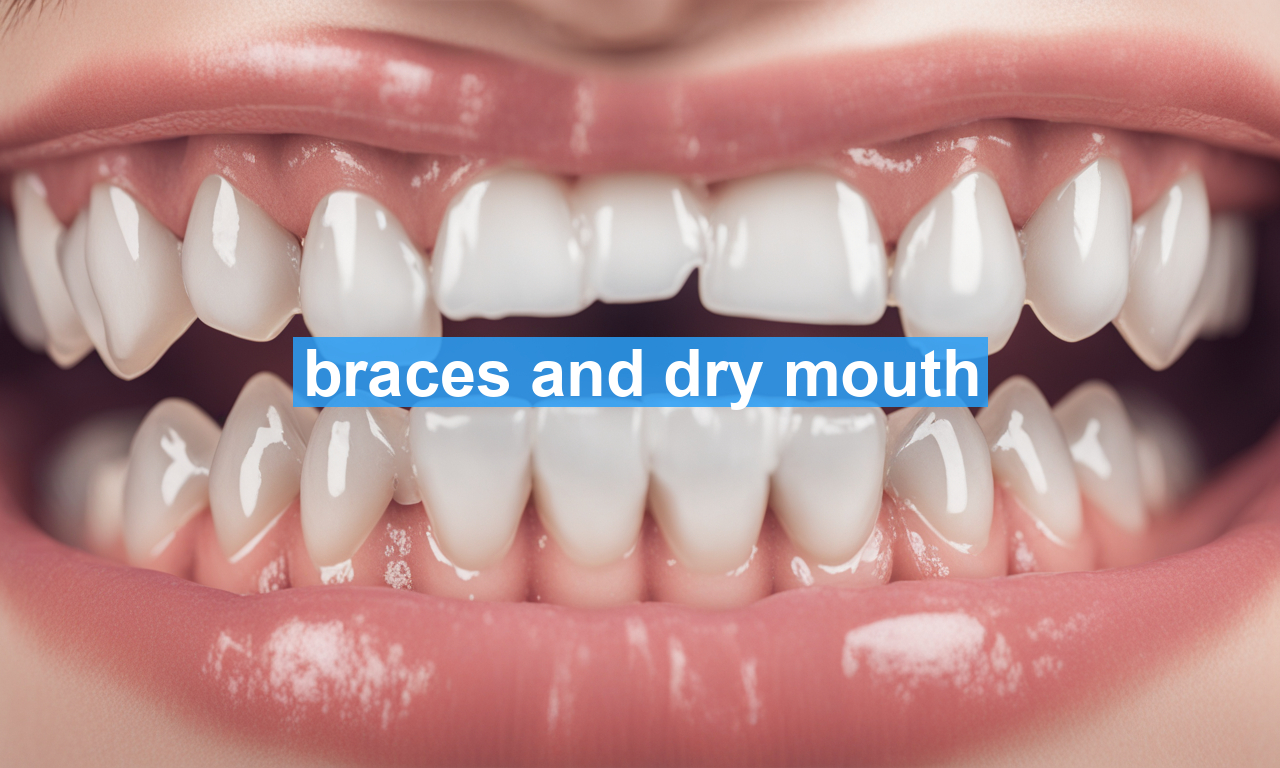Imagine waking up every morning with an unbearably dry mouth, even while undergoing orthodontic treatment that’s meant to give you the smile of your dreams. You’re not alone. Many people who wear braces also experience dry mouth, a condition that can lead to discomfort, difficulty in speaking, and even increased risk of tooth decay. This article delves into the relationship between braces and dry mouth, how you can manage it, and why it’s crucial to address the issue for optimal oral health.
Why Do Braces Cause Dry Mouth?
The connection between braces and dry mouth might not seem obvious at first, but the reasons are pretty straightforward. Braces can alter the way your mouth works, affecting everything from saliva flow to oral hygiene habits.
Mechanical Disruption
Having a foreign object in your mouth, like braces, often disrupts the natural flow of saliva. The brackets and wires can hinder your saliva from reaching certain areas, leading to dryness. This disruption can also cause irritation to the soft tissues, making the problem even more noticeable.
Increased Mouth Breathing
For some people, braces can cause slight discomfort or even breathing difficulties, leading them to breathe more through their mouth. This switch from nasal breathing to mouth breathing can significantly dry out your oral cavity.
Orthodontic Adjustments
During adjustments, the discomfort and pressure might cause some individuals to unconsciously avoid swallowing frequently, which can reduce saliva production. Medications for pain or inflammation can also contribute to dry mouth as a side effect.
Symptoms and Risks Associated with Dry Mouth
Dry mouth is more than just a minor inconvenience. It comes with a host of symptoms and risks that can seriously affect your oral and overall health.
How to Manage Dry Mouth While Wearing Braces
Luckily, there are several effective strategies and products that can help you manage dry mouth while ensuring your orthodontic treatment goes smoothly.
Stay Hydrated
This is the simplest yet most effective way to combat dry mouth. Drink plenty of water throughout the day. Avoid caffeinated and sugary drinks as they can exacerbate dryness. If you’re looking for more hydration tips, you can check out this Healthline article on the benefits of drinking water.
Use a Humidifier
Keeping the air in your home moist, especially while you sleep, can alleviate symptoms of dry mouth. Using a humidifier in your bedroom can significantly reduce this condition and make it easier for you to breathe and stay hydrated overnight.
Opt for Saliva Substitutes
Over-the-counter saliva substitutes or oral moisturizers can provide temporary relief. Products like Biotene or other similar mouthwashes and sprays are specially formulated to mimic your natural saliva.
Chew Sugar-Free Gum
Chewing gum can stimulate saliva production. Opt for sugar-free options to avoid adding unnecessary sugars to your diet, which can contribute to tooth decay.
Practice Good Oral Hygiene
Keeping your teeth and gums clean is essential, especially when dealing with braces and dry mouth. Brush your teeth at least twice a day and floss regularly to remove food particles and plaque. Consider using an antiseptic mouthwash that can help control plaque and oral bacteria. For step-by-step oral hygiene guidance, this Colgate resource on orthodontic care can be very helpful.
Consult Your Orthodontist
If your dry mouth persists despite trying these methods, consult your orthodontist. They can recommend specialized products or modifications to your treatment plan that can help manage the condition.
The Importance of Addressing Dry Mouth
Ignoring dry mouth can lead to more severe oral health issues down the line. Since saliva is vital in protecting your teeth and gums as well as aiding in digestion, taking steps to manage dry mouth ensures that you are maintaining a healthy environment for your orthodontic treatment to succeed.
Moreover, maintaining optimal oral health doesn’t only affect your mouth; it has broader implications on your overall well-being. Frequent dry mouth can complicate daily tasks like eating and speaking, affecting your quality of life. Thus, addressing it proactively is essential.
Conclusion
Dealing with dry mouth while wearing braces can be challenging, but it’s far from insurmountable. By understanding the root causes and implementing strategic measures, you can minimize discomfort and ensure your orthodontic treatment progresses smoothly. Drinking plenty of water, using a humidifier, and practicing good oral hygiene are just a few ways to keep dry mouth at bay. If symptoms persist, don’t hesitate to consult your orthodontist for tailored advice. Your smile—and your overall health—will thank you. For those interested in learning more about related oral health issues, you might find this WebMD guide on dry mouth remedies useful.

